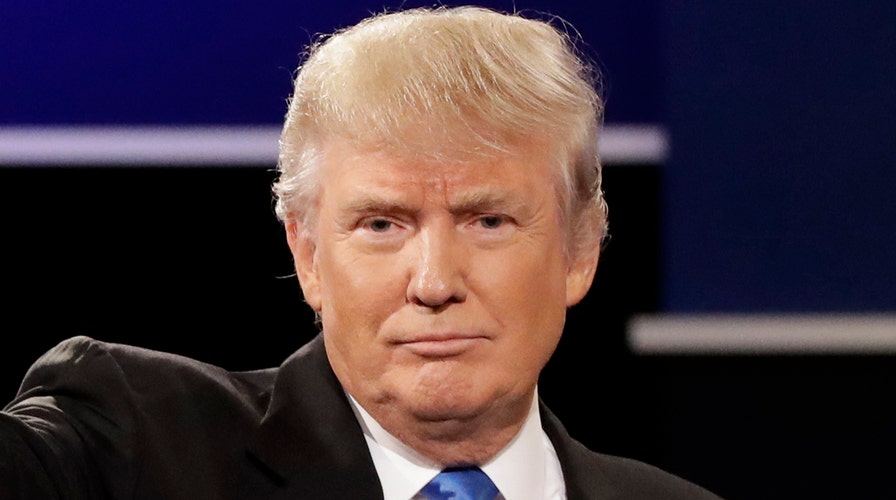Donald Trump reacts to first face off with Clinton
GOP presidential candidate on 'Fox & Friends'
Cybersecurity took center stage during Monday’s first presidential debate as Hillary Clinton and Donald Trump clashed on keeping America’s networks safe.
Both Clinton and Trump highlighted the importance of cybersecurity in response to a question from moderator Lester Holt.
“Cybersecurity, cyber warfare will be one of the biggest challenges facing the next president, because clearly we're facing at this point two different kinds of adversaries,” said Clinton. “There are the independent hacking groups that do it mostly for commercial reasons to try to steal information that they can use to make money. But increasingly, we are seeing cyber attacks coming from states, organs of states."
Cybersecurity has been firmly in the spotlight for the last few months, thanks largely to the breach of the Democratic National Committee’s computer network, which was blamed on Russia.
Related:
The Democratic nominee identified Russia as a key cyber threat to the U.S., turning her answer into an attack on Trump, who she described as “very praiseworthy” of Russian President Vladimir Putin. Clinton added that Putin “let loose cyber attackers to hack into government files, to hack into personal files, hack into the Democratic National Committee.”
She also referred to Trump’s call for Russia to hack her email. “I was so shocked when Donald publicly invited Putin to hack into Americans -- that is just unacceptable,” she said
Trump responded by saying that the U.S. “should be better than anybody else [at cybersecurity], and perhaps we're not.”
He also questioned whether Russia was behind the DNC hack. “I don't think anybody knows it was Russia that broke into the DNC,” the nominee said. “I mean, it could be Russia, but it could also be China. It could also be lots of other people. It also could be somebody sitting on their bed that weighs 400 pounds.”
Additionally, the Republican nominee highlighted the cyber threats posed by Islamic State. “We came up with the Internet, and I think Secretary Clinton and myself would agree very much, when you look at what ISIS is doing with the Internet, they're beating us at our own game,” he said. “So we have to get very, very tough on cyber and cyber warfare.”
The debate, however, did not reference Guccifer, the Romanian hacker who first exposed Clinton's use of personal email for government business. Earlier this month the hacker was sentenced to 52 months in prison by a federal judge.
Despite the absence of any new policy details from Clinton and Trump, the security industry welcomed the nominees' commitment to the issue of cybersecurity.
"While last night’s debate between candidates for the U.S. presidency did not uncover much new or common ground, questions on cybersecurity were probed, prompting the candidates to agree the issue holds significant challenge and needs substantial attention and improvement,” said Christos Dimitriadis, board chair of global security non-profit organization ISACA, in a statement. “It is critical that the next U.S. president, as a leader on the world stage and in the interest of national security, increase an emphasis on building and expanding cyber security capabilities and workforce skills. Cyber security is no longer a technology issue but a business and global imperative vital to economic stability and public safety.”
Follow James Rogers on Twitter @jamesjrogers









































